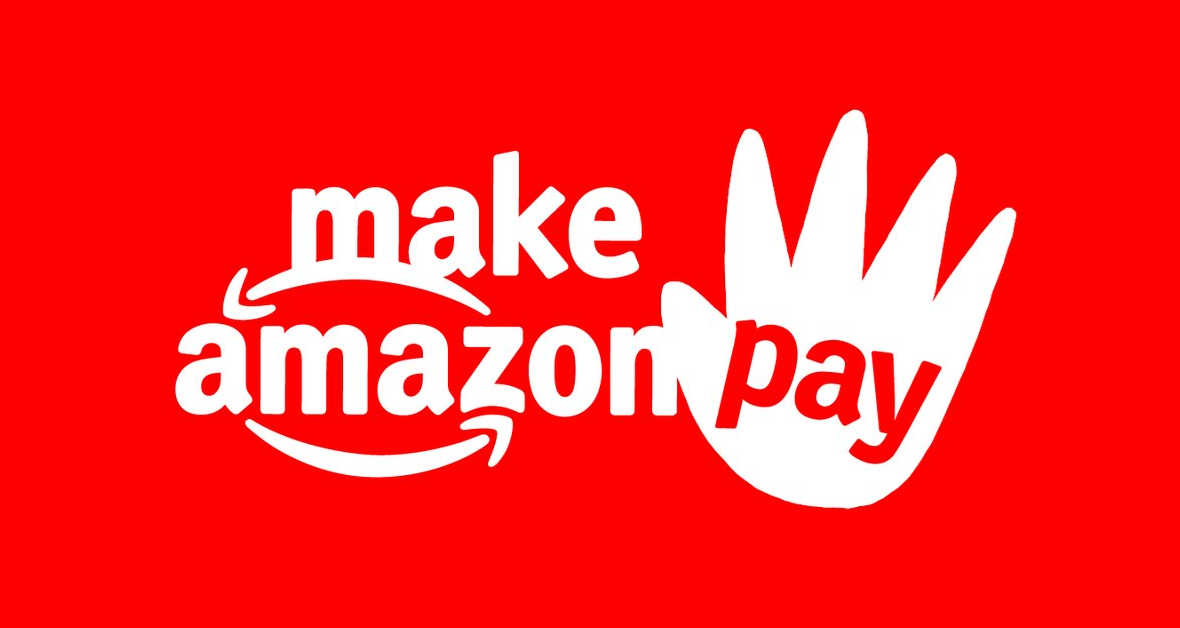
On July 11, Unifor announced that Amazon workers at the company’s Delta warehouse facility in British Columbia had won union certification.
For two years, Unifor has been organizing among Amazon workers in B.C. while contending with the company’s anti-union campaign. Unifor had accused Amazon of deliberately hiring scores of workers to undermine the union’s base of support, as well as engaging in a concerted anti-union pressure campaign inside the warehouse.
Following 18 days of hearings, the B.C. Labour Relations Board determined that Amazon’s anti-union actions were “deliberate, calculated, and pervasive” enough to warrant a remedial certification for the roughly 800 impacted workers.
Under B.C. labour law, a union may be granted automatic certification if an employer’s interference makes a fair vote unlikely.
With a union certification in hand, Amazon workers at the Delta facility can now begin negotiating a first collective agreement. The first major hurdle has been cleared. Now, the union must secure a contract.
The Continued Fight to Unionize Amazon
Efforts to organize Amazon are underway and ramping up across Canada. For several years, Unifor and the Teamsters in English Canada, and Confédération Des Syndicats Nationaux (CSN) in Quebec, have been actively working to secure union support among workers.
With the exception of Quebec, the results have been mixed.
In Alberta, the Teamsters twice failed to secure enough signed cards to hold votes in 2021. The company successfully thwarted these organizing drives in a more employer-friendly jurisdiction. Meanwhile, Teamsters locals in Ontario have also been active in the Greater Toronto Area and Hamilton, but have never filed for a certification.
In Quebec, the CSN successfully unionized a small bargaining unit of roughly 300 workers at a warehouse in Laval in May 2024. However, as the prospect of an arbitrated first contract loomed earlier this year, Amazon shuttered all of its Quebec facilities in seeming retaliation.
Workers at a new Amazon facility in Windsor, Ont., have also contacted Unifor and expressed interest in unionizing.
Canadian organizing efforts at Amazon fit within the broader, global effort to unionize the e-commerce giant. Unions, including the Teamsters in the United States, GMB in the United Kingdom and many others in continental Europe, have been working to bring Amazon workers into their fold, with some success. Meanwhile, UNI Global Union’s Amazon Global Labour Alliance has brought together more than 50 unions from more than 20 countries to co-ordinate organizing and push for change at the company.
Yet, despite the efforts of labour, Amazon remains largely union-free globally and adept at resisting worker organizing. Unifor’s certification in B.C. could change that.
Unifor’s B.C. Campaign
In June 2023, Unifor publicly announced the launch of an Amazon organizing campaign in B.C., hosting an event with then-president of the New York-based Amazon Labor Union (ALU), Chris Smalls, near YVR3, a fulfillment centre in New Westminster. At the time, Smalls and the ALU were the only group of workers to successfully unionize an Amazon facility after they did so in New York in April 2022.
Four months after the campaign went public, Unifor indicated that it had started collecting signed cards as the next step in the process of certifying.
In B.C., a union needs 55 per cent of members to sign cards to certify without a secret ballot vote under the province’s successful “card-check” model. If the union secures between 45 and 54 per cent, the labour board can hold a vote.
By April 2024, Unifor Local 114 had submitted certification applications to the B.C. Labour Relations Board covering facilities in Delta and New Westminster. “We call on Amazon to respect the wishes of workers and avoid using the legal tricks and games it has played in the past to block unionization,” Unifor western regional director Gavin McGarrigle said at the time.
However, it soon became apparent that Amazon was indeed deploying familiar “legal tricks and games” to obstruct the union. A week after filing to certify, Unifor temporarily withdrew both union applications, citing a “suspiciously high number of reported employees.”
In B.C., employers are not required to provide unions with an employee list. Unifor was therefore forced to estimate Amazon’s total head count at the two facilities, and thus the number of signed cards required to meet the legislative threshold to form a union, whether through card-check or via a ballot vote.
Once Unifor’s certification application was before the Labour Board and the company was compelled to disclose its employee lists, the union discovered a workforce much larger than it anticipated at the two facilities.
The union went back to organizing and submitted a second certification application for the Delta facility in May 2024.
Because of Amazon’s beefed up hiring, Unifor did not meet the 55 per cent threshold for a card-check certification. The union instead requested a certification vote, which the Board granted, while denying Amazon’s leave for reconsideration based on claims that the union hadn’t met the threshold for a vote either.
The Board’s Decision
Following a certification hearing at the Board in May 2024, Unifor filed an unfair labour practice (ULP) complaint against Amazon over what it characterized as an “unprecedented, fraudulent, and unnecessary” hiring spree between January and June of that year.
The union alleged a significant hiring blitz during what would normally be a time of workforce downsizing following the holiday season indicated the company’s intention to dilute union support at the warehouse.
During that period, hiring at the Delta facility increased by 32 per cent. By contrast, the workforce shrank by 25 and 33 per cent during the same annual slow seasons in 2023 and 2022, respectively.
Beyond hiring many seasonal workers to undermine the union’s support, Unifor alleged that Amazon engaged in a range of other pressure tactics illegal under provincial labour law. These included bringing in anti-union managers from outside the province and country to interrogate workers and flooding the facility with misleading anti-union propaganda. Unifor contended that Amazon’s anti-union actions in B.C. were so egregious that the bargaining unit should be certified automatically as a remedy.
In response, Amazon accused Unifor of filing its ULP as a strategy to win certification without disclosing the result of the secret ballot vote.
Ultimately, the Labour Board determined that Amazon did in fact hire additional staff to undermine union support. As the Board noted in its finding, employers may increase hiring during an organizing drive, but only to meet bona fide business needs. Amazon failed to demonstrate any business requirements that would justify its hiring spree. In fact, Unifor reported deliberate over-staffing, with workers in the warehouse performing an unusual amount of cleaning and organizational work to fill time.
As further evidence of anti-union animus, the Union introduced Slack messages between higher-level Amazon personnel discussing how more inventory could be diverted to the warehouse to justify additional hires ahead of the union vote.
When it came to the question of Amazon’s anti-union campaign, the Board again agreed with Unifor that the company had intimidated and coerced workers by, among other things, holding supposedly ‘voluntary’ but patently coercive anti-union meetings, interrogating individual workers about their union support, calling workers at home, and prohibiting the circulation of union materials.
Workers testified that Amazon managers from outside of B.C. and Canada were at the Delta facility every day during the organizing campaign in order to combat the union effort.
The union and workers also testified that Amazon relaxed policies and provided other inducements meant to dissuade workers from unionizing. For example, the company stopped disciplining workers for low productivity through its notorious “time off task” metric during Unifor’s organizing campaign.
The Board’s decision also provides helpful insight into how Amazon co-ordinates its anti-union efforts across worksites, by for example deploying “Rapid Response Teams” to “pulse” the level of union support in facilities where active campaigns are suspected.
Beyond remedial certification, the Board also ordered Amazon to cease further breaches of labour law, post the Board’s decision in the workplace and distribute it to employees, and allow Unifor to hold a meeting at the facility with all workers during regular hours and at Amazon’s expense.
What Happens Next?
The Labour Board decision is a huge win, both for workers at the Delta warehouse and for the ongoing efforts to unionize at Amazon. But in many ways, the fight has only begun.
As expected, the company plans to appeal the Board’s remedial certification decision. However, B.C. law requires that Amazon begin bargaining in good faith, irrespective of any intention to pursue other legal objections to the certification. While this prevents Amazon from delaying bargaining while it attempts to de-certify the union, it doesn’t prevent the company from dragging its feet in other, familiar ways.
B.C., like Quebec, has first-contract arbitration, which allows the union to appeal to the Board for assistance if they are unable to secure a collective bargaining agreement after one year. Of course, in Quebec, Amazon responded by closing rather than allowing that province’s Labour Tribunal to impose a union contract.
Will Amazon also push the nuclear button in B.C.? Only time will tell. However, the inability of the company to serve the lucrative B.C. market from elsewhere may place limits on this ‘cut-and-run’ option.
For now, the primary task is to wrestle Amazon to the negotiating table. There are many issues that workers will want to see addressed, perhaps most notably the various health and safety issues for which Amazon is infamous.
To make gains, the union will need to mobilize members through a strong first contract campaign. Given Amazon’s anti-union efforts, this won’t be an easy task.
A good first contract could set an important precedent for workers at Amazon facilities in B.C. and across Canada who need union power.
Recent Class Struggle Issues
- July 14 | Uber Drivers Have Unionized For The First Time In Canada
- July 7 | CUPE Is Fighting The Zionist-Instigated Firing Of A Paramedic
- June 30 | The Scab Ban Is A Huge Win, But It Must Be Enforced
- June 23 | The Liberals Are Bailing Out Canada Post Management Again







